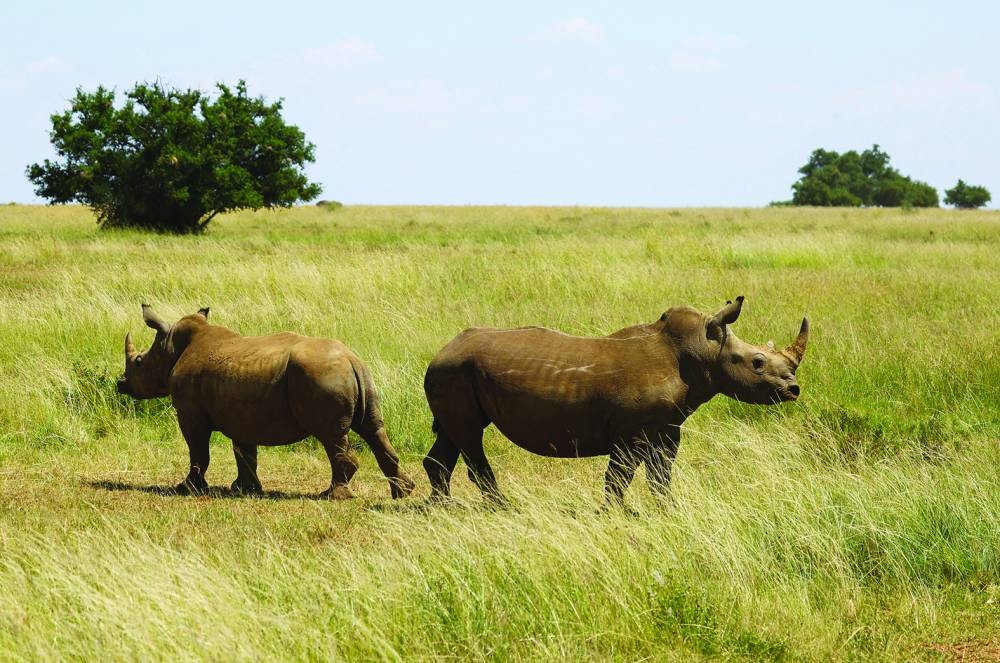Rhino poaching in South Africa dipped in the first half of 2024, with a major drop noted following the launch of a dehorning programme in April, the government said on Thursday.
Overall 229 rhinos were killed from January to June, two fewer than the same period in 2023, the environment department said in a statement.
There was a “significant drop” during May and June with national losses reported at 21 and 22 respectively, compared to 42 and 34 during the same period the previous year.
Environment minister Dion George attributed this to the dehorning of rhino populations in the eastern KwaZulu-Natal province and specifically in Hluhluwe iMfolozi Park, where over 1,000 rhinos have been dehorned since April.
South Africa is home to a large majority of the world’s rhinos making it a hotspot for poaching driven by demand from Asia, where horns are used in traditional medicine for their supposed therapeutic effect.
The southern African nation had 16,056 rhinos at the end of 2023, including 2,065 black and 13,991 white rhinos, the statement said. Black rhinos are listed by the International Union for Conservation of Nature (IUCN) as critically endangered.
The Kruger National Park, a tourist magnet bordering Mozambique, lost 45 rhinos in the first half of 2024 compared to 42 last year, a government statement said. As of 2023, the national parks authority requires new employees to take a lie detector test amid concerns that some workers might be in cahoots with poachers.
More than 60 people suspected of involvement in rhino poaching were arrested during the first half of 2024 while several convictions have been made and firearms recovered, the statement said. In a pioneering project aimed at curbing poaching, South African scientists in June injected radioactive material into the horns of live rhinos to make them easier to detect at border posts.
The environment ministry said that, despite poaching, the country’s rhino population has increased by 1,023 from 2021 to 2023.

